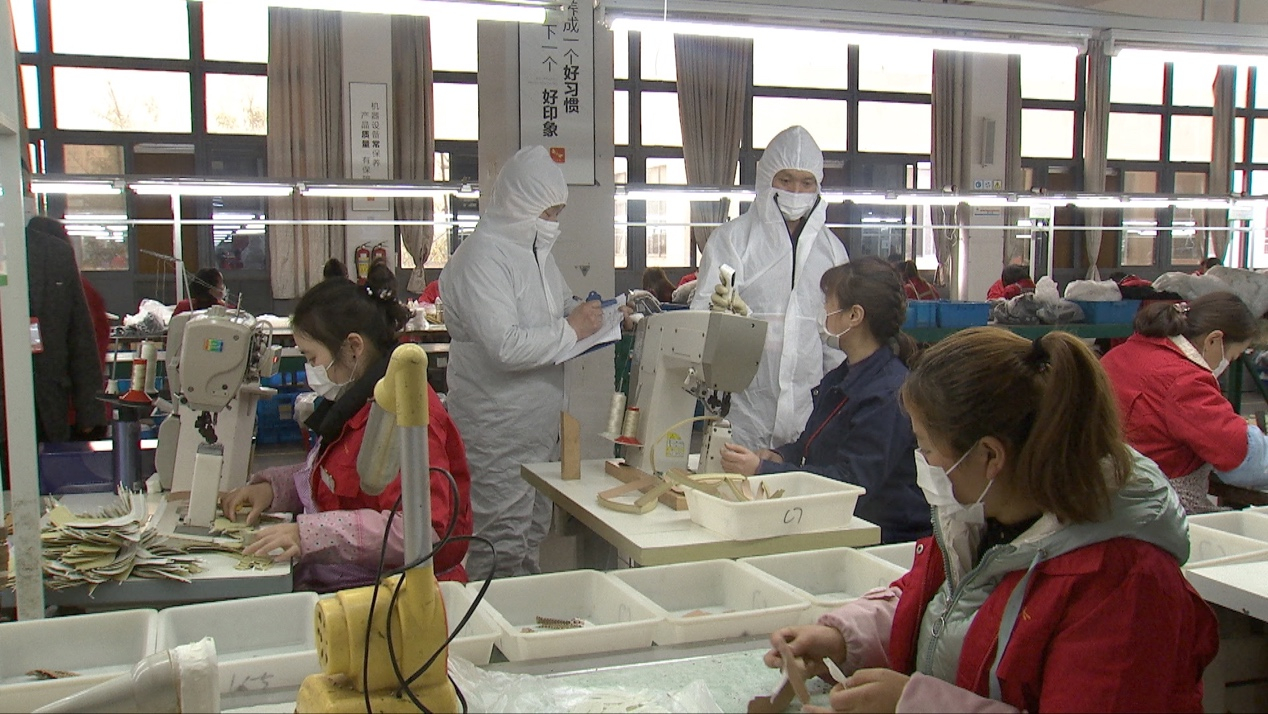02:57

China's businesses face risks of cross-infection, especially among labor-intensive industries, as they restart operations amid COVID-19. What type of precautionary measures have they taken? And how have they overcome current difficulties?
Strengthened hygiene in factories, canteens
Zheng Xiujuan has been working in Zhejiang Red Dragonfly Footwear Company for almost 20 years. This year, after the Chinese New Year break, she didn't return to work until late February due to the coronavirus outbreak. She now has to have her temperature taken three times a day.
Zheng said they take their meals in shifts, and stand in line at a one-meter distance. In the past, she and her colleagues sat at the same table. But now they sit at different ones.
Since resuming operations, the company has put in place various health and hygiene measures for its over 1,000 employees.
Zhang Guoyun, a manager with the company, told CGTN that they need to disinfect the factory floor thrice a day. They also have to open all ventilation equipment and give each employee two face masks every day. Workers are required to wash their hands before entering the factory.

Even though most of Red Dragonfly's 4,000 stores have reopened, the cash registers haven't exactly been ringing. /CGTN
Even though most of Red Dragonfly's 4,000 stores have reopened, the cash registers haven't exactly been ringing. /CGTN
Sales remain sluggish in traditional channel
But while the company's production has resumed, its sales and marketing have remained sluggish.
From daily production to sales, the outbreak has posed enormous challenges to manufacturers. They say more innovative marketing strategies will be needed to overcome this difficult period.
Innovative sales & marketing strategies
In order to boost sales, the company has encouraged all employees to promote its products on social media groups. Most of the sales staff also made it a point to do the same on livestreaming platform, generating substantial sales in recent days.
The company's CEO Qian Jinbo told CGTN that the marketing model is expected to be dominated by online sales. Internet livestreaming and community sales will become the mainstream, while retail stores will become places for delivery and customer experience.

Chinese shoe and cloth makers hope to expand their customer base through livestreaming on e-commerce platforms. /CGTN
Chinese shoe and cloth makers hope to expand their customer base through livestreaming on e-commerce platforms. /CGTN
Wenzhou Ceyadi Garments Company sells 80 percent of its clothes to European countries. But recently, the cost of shipping to Italy has increased steeply. As the pandemic continues to sweep across the world, the company is considering shifting its market focus to domestic and other emerging markets.
The company's general manager Taurus Chen told CGTN that boosting the domestic market is definitely their next focus. They don't want to put all of their eggs in a single basket. They need to expand their customer base with the help of e-commerce and other new technologies.
With no end in sight to the pandemic and many uncertainties ahead, these entrepreneurs say being innovative and flexible appear to be the only path to survival.